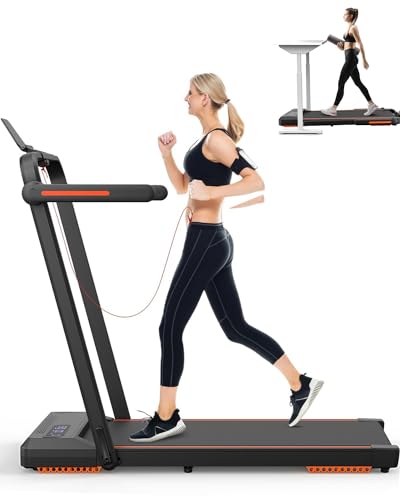
14
七月What's The Job Market For Tread Mill Professionals Like?
Treadmills: A Comprehensive Guide to Understanding Their Functionality, Benefits, and Appropriate Selection
Introduction
Treadmills have become a staple in modern-day physical fitness regimens, both in homes and fitness centers worldwide. They use a practical and effective way to keep cardiovascular health, increase endurance, and help in weight management. This article explores the various types of treadmills, their advantages, functions to consider when buying, and some FAQs to direct users in making notified choices.

Types of Treadmills
When it comes to picking a treadmill, it is important to comprehend the various types readily available in the market. Here are the primary classifications:
1. Handbook Treadmills
- System: These treadmills have a simple design and rely on the user's efforts to move the belt.
- Pros: More budget friendly, quieter operation, no electricity needed.
- Cons: Limited functions, might not supply the very same range of exercise strength.
2. Motorized Treadmills
- Mechanism: Powered by a motor that drives the belt, allowing users to walk or perform at a set speed.
- Pros: Greater variety of speeds and slopes, equipped with numerous functions such as heart rate screens and exercise programs.
- Cons: More pricey and might need more upkeep.
3. Folding Treadmills
- System: Designed for those with minimal space, these treadmills can be folded for easy storage.
- Pros: Space-saving, typically motorized, flexible features.
- Cons: May be less long lasting than non-folding designs.
4. Business Treadmills
- Mechanism: High-quality machines developed for use in gyms and physical fitness centers.
- Pros: Built to stand up to heavy use, advanced functions, typically consist of service warranties.
- Cons: Pricey and not ideal for home usage due to size.
5. Curved Treadmills
- System: A distinct design that allows users to move the belt using their own energy.
- Pros: Offers a more natural running experience, promotes better running type.
- Cons: More expensive and can be noisier.
| Treadmill Type | Pros | Cons |
|---|---|---|
| Manual | Affordable, no electrical power required | Minimal features |
| Motorized | Variety of speeds, advanced features | Maintenance needed |
| Folding | Space-saving, typically motorized | May lack durability |
| Business | Constructed to last, professional-grade functions | Pricey |
| Curved | Natural running experience, promotes great type | Higher rate |
Benefits of Using Treadmills
Treadmills offer numerous advantages that can contribute to one's total fitness and health objectives. A few of these advantages consist of:
- Convenient Workouts: Treadmills permit users to work out inside regardless of weather conditions.
- Cardiovascular Health: Regular use can improve heart health by increasing stamina and promoting healthy blood circulation.
- Weight Management: Effective for burning calories, which helps in weight reduction and management.
- Customizable Workouts: Users can control speed, incline, and period to produce personalized exercise experiences.
- Safety: Treadmills offer a foreseeable surface, reducing the danger of falls compared to outdoor running.
- Multifunctional: Many treadmills featured features like heart rate displays, exercise programs, and even entertainment systems.
Picking the Right Treadmill
When choosing a treadmill, potential purchasers should think about several crucial aspects:
Features to Consider:
- Motor Power: Typically determined in horse power (HP), a motor strength of a minimum of 2.5 HP is recommended for severe runners.
- Belt Size: A longer and broader belt accommodates different stride lengths, providing comfort during workouts.
- Incline Settings: Adjustable slope features replicate outside hill running and can increase exercise strength.
- Weight Capacity: Ensure the treadmill can support the user's weight for safety and durability.
- Console Features: Look for user-friendly control panels, exercise programs, and Bluetooth compatibility for streaming music or other functions.
Budget plan Considerations
- Under ₤ 500: Entry-level manual treadmills ideal for casual walkers.
- ₤ 500 - ₤ 1,500: tread Mill Mid-range motorized treadmills that use more features and much better sturdiness.
- ₤ 1,500 - ₤ 3,000: High-end designs with advanced technology, larger motors, and longer service warranties.
- Over ₤ 3,000: Commercial-grade treadmills ideal for frequent usage in gyms or training facilities.
Frequently Asked Questions (FAQs)
1. How frequently should I utilize a treadmill?
It is recommended to utilize a treadmill a minimum of 3 to 5 times a week, including various intensity levels for best outcomes.
2. Can I reduce weight by using a treadmill?
Yes, consistent usage of a treadmill can add to weight loss, especially when combined with a well balanced diet and strength training.
3. What is the best speed to walk on a treadmill for novices?
A speed of 3 to 4 miles per hour is an appropriate range for beginners. It's necessary to start sluggish and slowly increase rate as comfort and endurance enhance.
4. Do I need to use a treadmill if I currently run outdoors?
Utilizing a treadmill can provide fringe benefits, such as regulated environments and differed exercises (slope, intervals) that are not always possible outdoors.
5. How do I preserve my treadmill?
Regular upkeep includes lubing the belt, cleaning up the deck and console, and checking the motor for optimum efficiency.
Treadmills are important tools for those looking to boost their fitness levels in a regulated and hassle-free way. With various types readily available, comprehending their functions and advantages is important for making an informed purchase. By considering individual workout needs, space availability, and spending plan constraints, individuals can find the most ideal treadmill that fits their way of life. Incorporating treadmill exercises into a well balanced fitness regimen can cause enhanced health results and a satisfying exercise experience.

Reviews